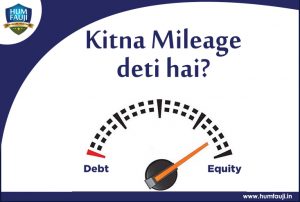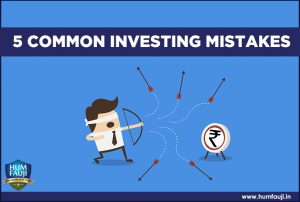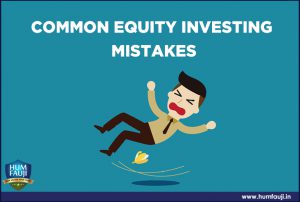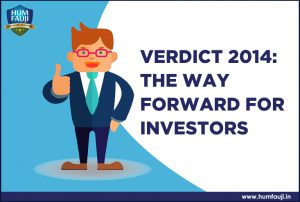
Kitna Mileage deti hai?
Sir, I’ve told him that he has a 80% Debt and 20% Equity portfolio where safety has been given more importance as this is his retirement corpus, but he insists that he won’t accept anything less than 15% annualized returns since the markets are now booming!” -I could make out my hapless young financial planner was at her wits end. “Sanjeev, what is this yaar? My overall portfolio returns are 25% CAGR (Compounded Annualized Growth Rate) but this one stupid fund is stuck at 17% and my planner is just doing nothing about it!”, ranted one of our aggressive customer. One of our bigger investor has moved almost 50% of his life’s savings to a well-known Portfolio Management Service (PMS) because his initial ‘test-drive’with their 100% equity portfolio produced great results in these rising markets. We routinely get calls from prospective clients who ‘haggle’ with us on ‘returns’ – if ...

Liquid Funds- 4% more Interest without you doing anything….
Col Sher Khan is a go-getter infantry officer, known for his professional acumen and is a sought-after party animal. He and his family live life to the full. His only Achilles Heel is finance. He routinely has a large amount – anything from Rs 75,000 to even 2-3 Lakhs lying in his savings bank account at any given time, earning 4% savings bank interest. And just because it was lying there, unimportant expenditures would come up and suddenly become urgent and the most important ones to be done then and there. He was fully aware that bank interest is fully taxable and he being in 30% bracket, it practically earned him a mere 4% - (30% of 4%) = 4% - 1.2% = 2.8% interest. He wanted to do something about it but didn’t know what and how. That’s the time he got introduced to Liquid Funds by a friend ...

Common Investment Mistakes and How to Avoid Them
Investing is an essential aspect of financial planning and wealth-building. However, many individuals fall prey to common investment mistakes that can hinder their long-term financial success. As a financial advisor, it is crucial to educate clients about these pitfalls and guide them toward making informed investment decisions. Here are some common investment mistakes and strategies to avoid them: 1. Lack of Proper Research: One of the most significant mistakes investors make is jumping into investments without conducting thorough research. It is vital to understand the investment product, assess its potential risks and returns, and evaluate how it aligns with your financial goals. Conducting due diligence, reading prospectuses, and seeking professional advice can help make more informed investment choices. 2. Emotional Decision-Making: Allowing emotions to drive investment decisions can lead to poor outcomes. Fear and greed often push investors to make impulsive decisions, such as panic selling during market downturns or ...

Common Equity Investing Mistakes
With the new NDA government coming to power, many investment experts believe that India is on the threshold of a long term secular bull market. While it is certainly easier to make money in bull markets, it is also easy to make mistakes in bull markets. Mistakes cost investors money and therefore must be avoided. We should clarify that this article is addressed to investors. Here are eight common equity investing mistakes in bull markets. 1. Trying to time investments at the start of a bull market: Retail investors wait too long trying to time the market. Most retail investors are not able to spot a bull market when it is taking off. When the market runs up significantly, retail investors realize that they have missed the bus. Timing the market is incredibly difficult. Even experienced professional investors often do not get their timing correct. Equity investing should be goal based, not ...

Verdict 2014: The Way Forward For Investors
Hardly 24 hours remain for the world to know who is going to occupy 7, Race Course Road, the official residence of the Prime Minister of India. All of us are waiting with bated breath to know if Narendra Modi as predicted by the exit polls will win the elections or will the Indian electorate throw up a surprise tomorrow. The exit polls have already given thumbs up to NaMo and team but history shows that we cannot blindly follow these numbers. In this scenario, the question that plagues most investors is what should be their plan of action for May 16, 2014. I have tried to answer this question by putting down three scenarios that can emerge tomorrow and what investors need to do if any of them becomes a reality. Plan of Action for May 16, 2014 Scenario 1: Narendra Modi led BJP comes to power, finally ending ...

Investing in Debt through Mutual Funds
What does debt investing mean? I understand ‘debt’ to be money borrowed. But I want to invest! When you lend your money to a bank (by putting your money into your savings bank account or making a bank deposit) or to a company (by investing in a company deposit) or to the government (by investing in bonds offered by state institutions such as IRDA – Insurance Regulatory And Development Authority & SIDBI - Small Industries Development Bank of India, etc. or making your Public Provident Fund (PPF) deposits or by investing in post office schemes), you are making ‘debt’ investments. While for you it actually means saving or investing money, for the borrowing entity (the bank, the company, the government, etc.), it means borrowing money. Debt investing – through Mutual Funds! But I thought Mutual Funds only invest in equity? Mutual funds are actually money managers. They offer different schemes ...

Four Things to Remember about Sensex at 21000
The benchmark BSE-Sensex is back at 21,000 levels. And suddenly there seems to be a rush of enthusiasm amongst market participants. Just to recall, the first time the Sensex had touched the 21k level was in January 2008. Then as we know, the markets crashed in response to the global financial crisis. Then again in November 2010, Sensex again hit the 21k level. And again the markets tanked after scaling that level... So the one obvious question on everyone's mind is ' Where will the Sensex go from here? Will it tank? Will it scale new highs? What is the answer? We beg to differ in our perspective of this entire situation. In our view, the question itself is flawed. For one, the 21k level denotes nothing more than a mere psychological point. Investors have seen the Sensex scaling this level and then correcting sharply. So there is a collective ...

HOW TO SELL YOUR HOUSE AT A GOOD PROFIT & PAY NO TAX
Have you sold your house and earned a hefty amount in profit but do not want to pay any income tax on this profit? Is there any legitimate way to do this? Yes, there are more than one ways. We explain below how income tax can be avoided (of course, totally legally) on Long Term Capital Gains (LTCG) earned from the sale of a house (a flat or an apartment or an independent house – any residential property) which you have held for at least 3 years. Please Note: There is no way to save income tax on the short term capital gain earned from the sale of a house, ie a house held for less than 3 years. This mail specifically deals with long termcapital gain only. For the sake of keeping the discussion simple, we presume that you have taken advantage of the benefit of indexation while calculating your capital gains, ...

Diversification of Your Investments- Don’t Put All Your Eggs In One Basket
We frequently come across individuals who are very finance-savvy but have taken a fancy to one particular asset-class and are totally convinced that it is the best one to sail them through their life. This bias is seen mostly in real-estate investments and in equity investments(stocks or shares, as they are variously called). Unmindful of the danger it poses to their long-term goals, they continue to invest all their investible suplus in their favoured avenue without caring about one of the Golden Rules of Investment - Diversification of assets. What is diversification? Diversification means spreading your investments over a number of investment avenues. Why do we need to diversify our investments? Why should we not put it all in only one type of investment which we think is the best? Let’s look at the example below. A man wants to sell eggs to buyers in the city. He will carry ...

IS YOUR BANK FIXED DEPOSIT CHEATING YOU?
IS THERE AN ALTERNATIVE TO A BANK FD FOR SAFE INVESTMENTS? Nobody likes to lose money. The most common refrain that I hear as a Financial Planner is – “I may not make much money, but I don’t want to lose any ever!” Why not - after all it is your hard-earned money, why lose even a bit of it? But then that person puts the very same money in a Fixed Deposit (generally of a bank, sometimes in a Company) for a few years, without realising that he has done exactly what he wanted to avoid!! Let’s give it a closer look. Let’s say you have Rs 5 Lakhs which you want to invest in a safe place for 3 years. Let’s also say that your bank offers you a good 9.5% per annum (pa) rate of interest. You go ahead with the FD and expect the interest of ...


